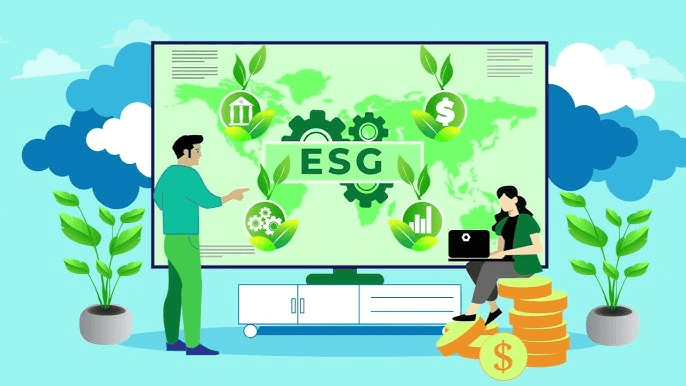As environmental concerns grow and consumers demand more accountability from businesses, sustainability reporting has emerged as a powerful tool to drive transparency and corporate change in France. By systematically disclosing a company’s environmental, social, and governance (ESG) impacts, sustainability reporting allows organisations to build trust with stakeholders, improve operational efficiency, and contribute to long-term sustainability goals. In this blog, we’ll explore the importance of sustainability reporting, its impact on businesses, and how it can shape the future of corporate responsibility.
What is Sustainability Reporting?
Sustainability reporting is the practice of measuring, disclosing, and being accountable for a company’s performance in areas that extend beyond financial outcomes. It covers how organisations manage their environmental, social, and governance impacts. This process is typically done annually, and it highlights the efforts businesses make toward sustainable development, such as reducing carbon emissions, improving labour practices, or increasing energy efficiency.
These reports help investors, customers, employees, and regulators assess a company’s overall sustainability efforts and performance. But more than just a way to demonstrate accountability, they offer businesses the opportunity to identify risks, discover efficiencies, and improve internal operations.
The Growing Importance of Sustainability Reporting
In today’s interconnected world, stakeholders are demanding greater transparency from corporations regarding their environmental and social impacts. Consumers increasingly want to support companies that share their values, while investors are placing more emphasis on ESG criteria when making decisions. Governments are also setting stricter regulations, pushing businesses toward more sustainable operations.
Given this evolving landscape, sustainability reporting has become a critical way for organisations to maintain relevance and credibility. Businesses that ignore these trends risk losing customers, investors, and market share to more transparent and socially responsible competitors. On the other hand, companies that embrace sustainability reporting often gain a competitive edge by appealing to the growing number of conscious consumers and investors.
Driving Corporate Change Through Transparency
1. Enhanced Accountability and Governance
Through sustainability reporting, businesses in France can track their progress in achieving sustainability goals and make more informed decisions about future initiatives. By holding themselves accountable, companies are more likely to foster a culture of responsibility and ethical behaviour at all levels of the organisation. Sustainability reports are often reviewed by independent auditors, ensuring that the information disclosed is accurate and trustworthy.
2. Operational Improvements
Sustainability reports can identify areas where a company may be inefficient or wasting resources. For example, tracking energy use and carbon emissions can help organisations pinpoint where improvements can be made, leading to cost savings and reduced environmental impact. Many companies find that the process of compiling a sustainability report reveals opportunities for optimisation they hadn’t previously considered, leading to both financial and environmental benefits.
3. Attracting Investors
More investors today are integrating ESG factors into their investment decisions, meaning that a robust sustainability report can significantly influence investor confidence. Investors use these reports to gauge a company’s long-term viability, particularly in a world where environmental concerns, regulatory changes, and shifting market demands are becoming increasingly important. Businesses that demonstrate strong sustainability performance are better positioned to attract ESG-focused investors.
4. Strengthening Brand Reputation
Consumers are increasingly drawn to brands that are transparent about their environmental and social responsibilities. In fact, studies show that many consumers are willing to pay more for products and services from companies that demonstrate a commitment to sustainability. A well-executed sustainability report can strengthen brand loyalty by showing that a business is not only aware of its impact but is also actively working to minimise its footprint.
5. Regulatory Compliance
As governments worldwide introduce stricter environmental regulations, companies that already practice sustainability reporting are better prepared to meet these legal requirements. By staying ahead of the regulatory curve, businesses can avoid fines and other penalties while positioning themselves as leaders in their respective industries.
Future Trends in Sustainability Reporting
As the demand for transparency continues to grow, sustainability reporting is likely to evolve and expand in the coming years. Some trends to watch for include:
1. Integrated Reporting
More companies are moving toward integrated reporting, which combines traditional financial information with sustainability metrics to provide a comprehensive view of the company’s overall performance. This holistic approach helps stakeholders understand how financial success and sustainability are interconnected.
2. Increased Use of Technology
Advances in technology are making it easier for companies to collect, analyse, and share sustainability data. Digital platforms and artificial intelligence can streamline the reporting process, providing real-time insights and helping organisations make more informed decisions.
3. Standardisation and Regulation
As sustainability reporting becomes more widespread, there may be increased efforts to standardise reporting practices and establish mandatory reporting requirements. This could lead to greater consistency across industries and help stakeholders compare companies on an apples-to-apples basis.
Conclusion
In an era where transparency is increasingly valued, sustainability reporting has become a crucial tool for businesses in France looking to drive corporate change and remain competitive. By providing clear and accurate insights into a company’s environmental and social impacts, sustainability reports foster trust among stakeholders, enhance operational efficiency, and attract investment. As this practice continues to evolve, companies that embrace it will not only contribute to a more sustainable future but also position themselves for long-term success.

